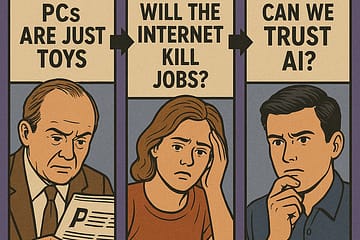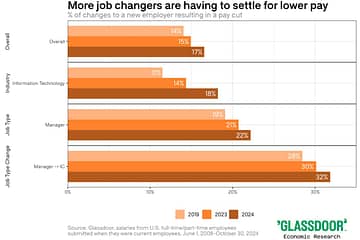In recent years, a significant shift has been observed in the job market. Employers are increasingly reconsidering the necessity of college degrees for certain positions. This shift has opened up opportunities for people without a college degree to pursue jobs in fields previously closed to them. It has also caused employers to reconsider their hiring criteria, leading to a more diversified workforce. This blog post delves into the latest trends surrounding the lowering of college degree requirements for job postings — and explores the potential implications for both job seekers and employers.

Technology and the Evolving Job Market
The job market is evolving rapidly, driven by technological advancements and changing industry demands. Automation and artificial intelligence (AI) are transforming the way people work, and the way businesses operate. It is also changing the way people search for jobs, and how they find and apply for them. AI is used in job search engines and job portals to match job seekers with employers, and to streamline the job application process. It is also used to analyze resumes and job postings, to identify potential candidates and to create job recommendations. AI is making the job market more efficient and accessible, and is allowing employers to find the right candidates faster and easier.
Shifting Perspectives on Education
Employers are recognizing that a college degree does not always guarantee the skills and qualities needed for a particular role. They are placing greater emphasis on practical experience, specialized certifications, and soft skills. In a recent study by Harvard Business School, 37% of employers said that they prefer experience over education in an applicant. Furthermore, research from Harvard in partnership with the Carnegie Foundation and Stanford Research Center has concluded that 85% of job success comes from having well‐developed soft and people skills, and only 15% of job success comes from technical skills and knowledge (hard skills).
This shift is opening doors for individuals who possess valuable skills but may not have pursued a traditional college education.
Expanding Access to Opportunities
By lowering degree requirements, employers are widening the pool of potential candidates. According to a report from the Burning Glass Institute, between 2017 and 2019, 46% of “middle-skill occupations” and 31% of “high-skill occupations” saw a drop in college degree requirements. This benefits individuals who may have been excluded due to financial constraints or personal circumstances that prevented them from pursuing higher education. It also promotes diversity and inclusion in the workforce, fostering innovation and fresh perspectives.
What’s Next for Job Seekers and Employers?
This shift is similar to a snowball rolling down a hill; once it gathers momentum, it can be difficult to stop. As employers continue to lower their requirements for college degrees, job seekers may be faced with a more difficult and competitive market.
There is no denying, however, that the lowering of college degree requirements in job postings reflects a changing mindset in the job market. While it presents new opportunities for job seekers and promotes inclusivity, challenges remain. Striking a balance between practical experience and academic qualifications will be crucial. As the job market continues to evolve, it is essential for employers to adopt a nuanced approach to hiring while considering the potential of candidates beyond their formal education.



0 Comments